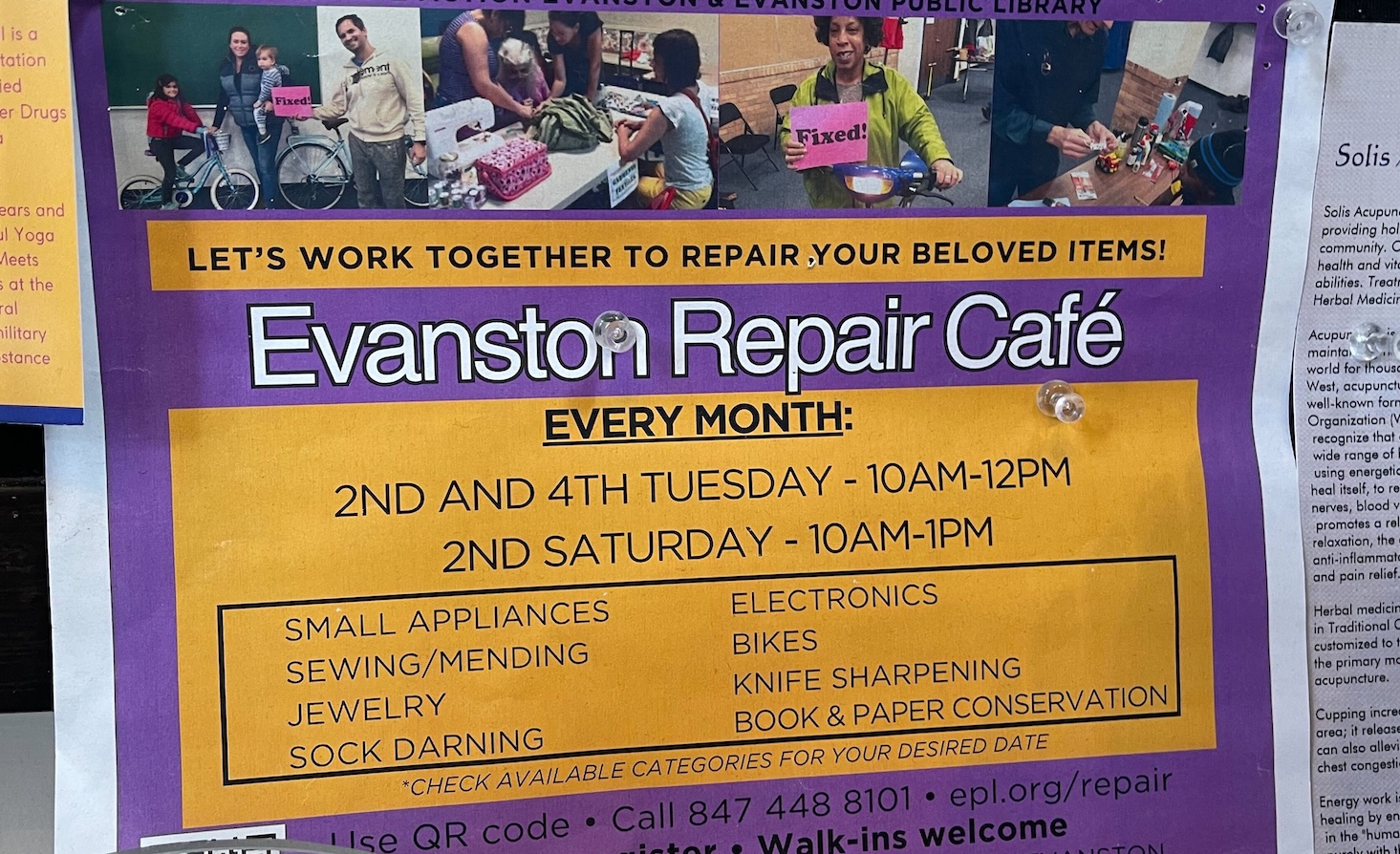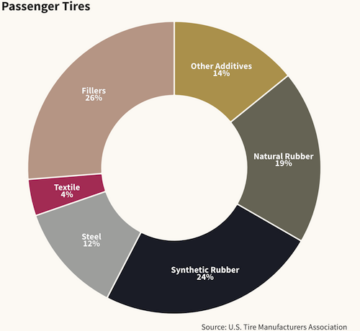Although disposability often reigns supreme in our culture, local repair clinics are slowing down consumption and prioritizing the practice of repair, fostering principles of the circular economy. In Berlin (German), London and New York, they have become commonplace. These educational and hands-on workshops, offered at libraries, schools and local government offices, bring together communities while extending the lifespans of products.
“There are more repair cafes than ever before,” Elizabeth Chamberlain, director of sustainability at the global repair organization iFixit, said via email. “Repair cafes help fill the void left by the decline of the independent repair market.”
In California, Fixit Clinic is leading the way, started by right-to-repair advocate Peter Mui in 2009. Its volunteer staffers help to disassemble, troubleshoot and repair a wide variety of broken items for free, including computers, clocks, clothing, bicycles and kitchen gadgets. What began as a small initiative has grown into a movement: 200 Fixit Clinics were held across the United States in 2023.
Connections for communities
Grassroots community repair efforts around the world share similar goals. Dutch journalist Martine Postma organized her first Repair Cafe in Amsterdam in 2009. The decentralized network now has 3,009 free-repair cafes from Japan to Iceland to Brazil. Tools, materials and about 45,240 skilled volunteers help mend an estimated 54,288 items per month. The organization promises at least an attempt to repair anything that “you can manage to carry on your own to the Repair Cafe.”
Both Fixit Clinic and Repair Cafe offer resources to help organizers recruit experts, engage community and kickstart recurring workshops.

![]()
![]()
![]()
![]()
Repair clinics serve as vibrant hubs for community engagement and connection. Organizers often strive for broader, less tangible goals than maximizing the numbers of items fixed: instilling confidence and equipping people with critical thinking skills to repair independently.
Chamberlain underscored the value of skill-building and self-sufficiency. Often people who show up at repair clinics to watch and learn eventually become experts in their own right, she said.
Implications for businesses
The rise of repair initiatives carries significant implications for corporate sustainability practitioners. Ultra-fast fashion companies such as Shein and e-commerce platforms such as Temu are escalating low-quality, high-consumption habits. Repair clinics offer a different ethos and different habits.
Businesses have many options to meet and support this movement. They can foster an ecosystem of repair by supporting right to repair legislation; designing for modularity, durability and standardization; and providing accessible parts and repair manuals. Companies can also send their repair experts to local events to share best-practices.
“At repair cafes, everyone’s favorite devices to work on are the ones with lots of clear troubleshooting information and readily available parts,” says Chamberlain. “The best repair documentation goes beyond just describing how to replace parts and actually includes schematics and wiring diagrams.”
Companies committed to enabling the circular economy should also consider supporting and participating in these community-driven repair initiatives. Last year, a repair event organized by and for HP employees in Boise, Idaho, prompted conversations about the repairability of the company’s own laptops and printers. By hosting repair clinics, companies can demonstrate their commitment to sustainability while engaging with communities.
Embracing repair initiatives often aligns with existing corporate circularity goals and can enhance brand reputation and customer loyalty. Businesses that champion repairability and promote sustainable consumption can position themselves as leaders and forge deeper connections with their customers, ultimately contributing to the emergence of a more circular economy.
- SEO Powered Content & PR Distribution. Get Amplified Today.
- PlatoData.Network Vertical Generative Ai. Empower Yourself. Access Here.
- PlatoAiStream. Web3 Intelligence. Knowledge Amplified. Access Here.
- PlatoESG. Carbon, CleanTech, Energy, Environment, Solar, Waste Management. Access Here.
- PlatoHealth. Biotech and Clinical Trials Intelligence. Access Here.
- Source: https://www.greenbiz.com/article/these-workshops-offer-alternative-throwaway-culture
- :has
- :is
- $UP
- 15%
- 200
- 2009
- 2023
- 288
- 45
- 54
- a
- About
- accessible
- across
- actually
- advocate
- Aligns
- also
- alternative
- amsterdam
- an
- and
- anything
- ARE
- around
- AS
- At
- attempt
- available
- become
- before
- began
- BEST
- Beyond
- bicycles
- board
- brand
- bring
- broader
- Broken
- bulletin
- businesses
- by
- cafes
- california
- CAN
- carry
- Carry On
- champion
- circular
- circular economy
- clear
- click
- clinics
- Clocks
- Clothing
- commitment
- committed
- Communities
- community
- Community Driven
- Companies
- Company’s
- computers
- confidence
- connection
- Connections
- Consider
- consumption
- contributing
- conversations
- Corporate
- critical
- Culture
- customer
- Customer Loyalty
- Customers
- data
- decentralized
- decentralized network
- Decline
- deeper
- demonstrate
- describing
- designing
- Devices
- diagrams
- different
- Director
- documentation
- down
- durability
- Dutch
- e-commerce
- e-commerce platforms
- economy
- ecosystem
- educational
- efforts
- emergence
- employees
- enabling
- engage
- engagement
- engaging
- enhance
- escalating
- estimated
- Ether (ETH)
- Ethos
- Event
- events
- eventually
- EVER
- everyone
- existing
- experts
- extending
- Fashion
- Favorite
- February
- fill
- First
- fixed
- For
- forge
- Foster
- fostering
- Free
- Gadgets
- German
- Global
- Goals
- Goes
- Government
- government offices
- grown
- habits
- hands-on
- Have
- Held
- help
- her
- hosting
- How
- How To
- HP
- HTML
- HTTPS
- hubs
- Iceland
- ifixit
- illinois
- implications
- in
- includes
- Including
- independent
- independently
- information
- Initiative
- initiatives
- into
- items
- ITS
- Japan
- just
- kitchen
- laptops
- Last
- Last Year
- leaders
- leading
- LEARN
- least
- left
- less
- libraries
- local
- Local Government
- lots
- Loyalty
- manage
- many
- Market
- materials
- maximizing
- Meet
- Month
- more
- move
- movement
- network
- now
- numbers
- of
- offer
- offered
- offices
- often
- on
- ones
- Options
- organization
- Organized
- organizers
- our
- own
- participating
- parts
- People
- per
- Peter
- Platforms
- plato
- Plato Data Intelligence
- PlatoData
- position
- practice
- presentation
- principles
- prioritizing
- Products
- promises
- promote
- providing
- readily
- recruit
- recurring
- repair
- replace
- reputation
- Resources
- right
- Rise
- s
- Said
- says
- Schools
- send
- serve
- Share
- she
- SHEIN
- should
- show
- sign
- significant
- similar
- skilled
- skills
- Slowing
- small
- standardization
- started
- States
- strive
- such
- support
- Supporting
- Supreme
- Sustainability
- sustainable
- tangible
- than
- that
- The
- the world
- their
- themselves
- There.
- These
- they
- Thinking
- this
- to
- together
- tools
- Ultimately
- underscored
- United
- United States
- value
- variety
- via
- vibrant
- volunteer
- volunteers
- Watch
- Way..
- were
- What
- while
- WHO
- wide
- with
- Work
- Workshops
- world
- year
- you
- Your
- zephyrnet











